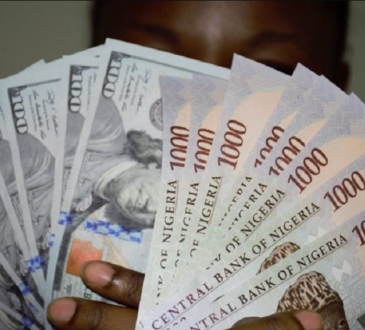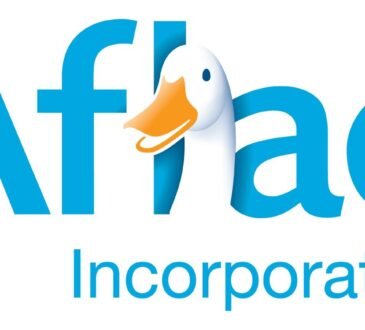For years Western Union was the money transfer method of choice for Jones Obi, a 47-year-old Nigerian software engineer based in Maryland, US. The recipients back home would get cash dollars which they could convert to naira at competitive exchange rates in the parallel market.
“When dollars became scarce in Nigeria, I switched to a money transfer app that also offered the parallel rates,” said Obi in a phone interview. “Their charges are lower, and the rates are good, though I worry sometimes if they’re truly legit.”
New measures introduced by the Central Bank of Nigeria (CBN) aim to draw the likes of Obi back to the official remittance channels. Faced with dwindling export income, a mountain of debt and a fast-depreciating currency, Nigeria is turning to its diaspora for rescue.
Remittances from the Nigerians living abroad reached $20bn in 2023, according to the World Bank, slightly lower than the $21bn a year earlier, and still about a third of the entire flows to sub-Saharan Africa for the year. The flow is projected to reach $26bn in the next two years, making it a hard-to-ignore source of foreign income, and one the monetary authorities want to be reflected in the value of the naira.
In June, the CBN announced that international money transfer operators (such as Western Union, Moneygram and Ria), would be given access to the official foreign exchange trading window known as the Nigerian Autonomous Foreign Exchange Market (NAFEM).
In other words, they would be able to access the naira value in real-time to pay recipients of international transfers at the going exchange rate. This was part of measures “aimed at widening access to local currency liquidity for the timely settlement of diaspora remittances,” W. J. Kanya, the acting director of the CBN’s Trade and Exchange department, said while disclosing the measure.
Central Bank Governor Olayemi Cardoso (above) concedes that inflows of foreign currencies from Nigerians living abroad form a key part of the strategy of the monetary authorities to improve foreign exchange liquidity and strengthen the value of the naira. Reforms implemented by the monetary authorities have brought the official and the unofficial, parallel market close to convergence.
“We’ve had a recognition of the huge role Nigerian diasporans play in remitting tremendous amounts of money into the system,” Cardoso said, adding that the regulator set up a special committee with the task of doubling diaspora inflows. “It’s beginning to bring about results. Again, we are confident that with these kinds of measures, liquidity will increase in our market,” said Cardoso.
In February alone there was an inflow of $1.3bn in Nigerian diaspora remittances, most of it chasing short-term government securities in the wake of a rate hike, according to the CBN. It’s a sign of the growing influence of that source of funding, which has averaged 80% of the federal budget in value in recent years, and is several times bigger than the combined foreign direct investment and foreign aid flows into Nigeria, according to official data.
Linking the official foreign exchange market directly to diaspora remittances is expected to give strength to the naira while addressing a longstanding concern about the remitted foreign currencies not reaching Nigeria. That is expected to be one of the benefits of having a unified exchange rate, where there’s no parallel market rate divergence to necessitate round-tripping.
At least $18bn out of the $20bn remitted into Nigeria last year didn’t make it to the country’s shores, according to Taiwo Oyedele, a former PwC Nigeria executive, now chairman of the Presidential Task Force on Fiscal Policy and Tax Reforms. Most Nigerians abroad send money using apps that allow them to deposit the foreign currency equivalent to the recipient in Nigeria while the money remains abroad.
“They use parallel market rates,” Oyedele said at a Lagos Chamber of Commerce event in June. “So, you take $1,000 in New York and tap on your phone that you are sending it to someone through a fintech. They pay the naira equivalent in Nigeria without bringing in the dollars.”
Successive efforts to control remittances
Past efforts by the monetary authorities to gain control over those remittance inflows included a directive that made it optional for beneficiaries to be paid in foreign currencies, usually dollars, pounds or euros.
Then there were allegations that international money transfer companies were finding ways to avoid making hard-currency payments in favour of naira, and at exchange rates that still allowed them to make a big profit from reselling in the unofficial market.
This prompted another directive in January 2021 that “all diaspora remittances must be received by beneficiaries in foreign currency only”, either paid in cash at the bank, or transferred to a foreign-currency account of the recipient.
The central bank clearly stated at the time that the measure was intended to improve the inflow of foreign currency into the country, warning that money transfer companies were “not permitted, under any circumstances, to disburse diaspora remittances in naira.”
With Olayemi Cardoso succeeding Godwin Emefiele as governor of the CBN last year, there was yet another policy summersault. Once more the remittances are to be paid in naira, this time sourced from the official foreign exchange market, where rates are increasingly at par with what obtains in unofficial trading. “These measures are aimed at widening access to local currency liquidity for the timely settlement of diaspora remittances,” said the CBN in the 24 June directive.
At a time when the Tinubu government is desperate to reduce the impact of the drastic measures, including the devaluation of the naira and cutting of fuel subsidies that it implemented in its early days, diaspora funds appear likely to help strengthen the naira and reduce the inflationary impact of the devaluation. The diaspora remittances have also been steady and growing.
The challenge for Nigeria is channelling funds coming from citizens abroad into development projects such as education, healthcare, infrastructure and even start-up capital, according to Financial Derivatives Co., a Lagos-based business advisory. “However, challenges such as high transfer costs hinder Nigeria’s ability to tap into the benefits of buoyant remittance inflows,” said the firm’s team of analysts led by Bismarck Rewane in a recent note.
The World Bank has recommended ways in which diaspora funding could be deployed to improve a country’s financial position while simultaneously aiding development. Beyond short-term savings, to which a significant number of inflows go, the World Bank sees diaspora bonds as a better option, where even future remittances “can be used as collateral to lower the costs of international borrowings by developing countries.”
Nigeria’s diaspora remittances currently come in three broad categories. There is social welfare funding for family and friends, to cover basic health, food and education expenses. Other kinds come as short-term investments in securities and other financial instruments, while a large proportion goes into real estate investments.
After issuing its first diaspora bond in 2017 that raised almost $300m, Nigeria has indicated its intent to issue more such bonds later this year. In April the government announced plans to set up a $10bn diaspora fund, which will support critical areas of the economy while yielding returns to investors. Plans are afoot to issue dollar-denominated sovereign local debt with yields in line with the monetary policy rate to lure even more Nigeria-bound remittances.
Diversity of remittance channels
It is estimated that only about half of the funds that make their way from the diaspora to Nigeria (and most African countries) are sent by official channels.
The diversity of Nigerian migrants is reflected in the remittance channels used. The low-skilled economic migrant who crossed the Sahara Desert and the Mediterranean Sea to get to Europe might prefer the informal channels; quite unlike the high-skilled professionals and investors, such as Bayo Ogunlesi of Global Infrastructure Partners, whose company owned London’s Gatwick airport, bought in January by the asset manager Blackrock for $12.5bn.
Similarly, the Nigeria Diaspora Investment Summit is a private sector group that seeks to introduce Nigerians living abroad to lucrative local investment opportunities, by working with the government’s Diaspora Commission. Leading areas of interest for Nigerians abroad are business innovations and technology, according to Kachi Okezie, a spokesman for the Summit.
“Diaspora Nigerians are motivated significantly by their strong emotional connection and sentimental attachment to their homeland, coupled with their deeper understanding of local needs,” says Okezie. “Compared to the nominal foreign investor, a typical Nigerian in the diaspora, having grown up in Nigeria, is familiar with local needs, cultural nuances, and market dynamics.”
Before and after Nigeria’s independence in 1960, the UK, the former colonial ruler, was the foreign destination of choice for Nigerians, with the US in second place. The first major wave of migrations started in the mid-80s, after Muhammadu Buhari, then a soldier, seized power and enforced an austerity regime. The decade and a half of brutal military rule that ensued, with General Ibrahim Babangida and then General Sani Abacha at the helm, led to the departure of academics and professionals who saw no future under such repressive regimes.
The worsening economic circumstances during the quarter of a century of civilian rule that followed after the 1999 departure of the military have ensured that more Nigerians, of varying skill levels, continue to go abroad as economic migrants. As soon as they make some money, their thoughts are on sending some back home, making it ironic that those who left the country because it held nothing for them have now become its financial lifeblood.





